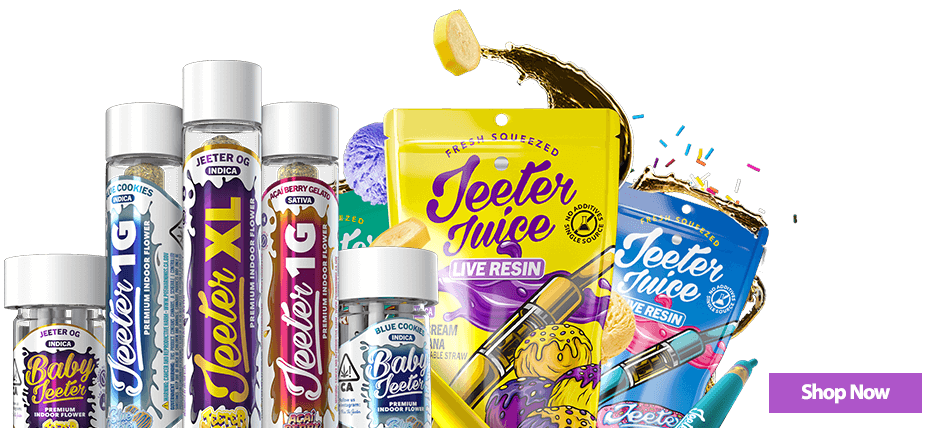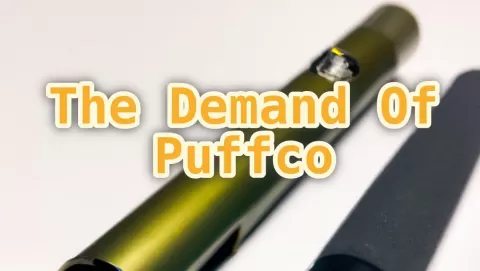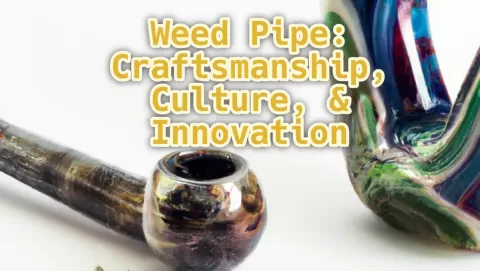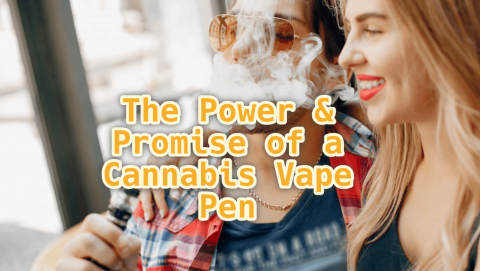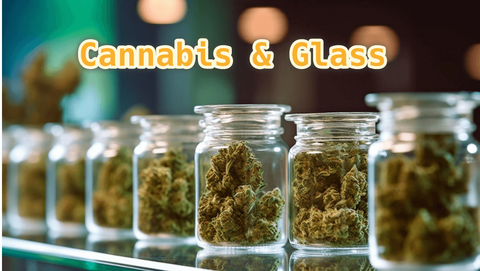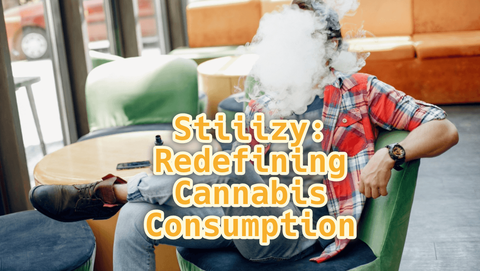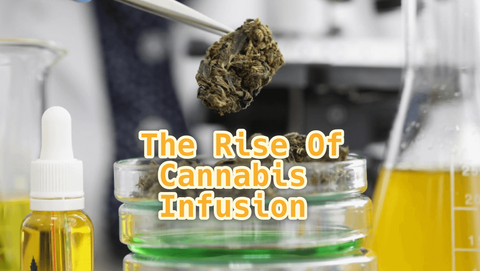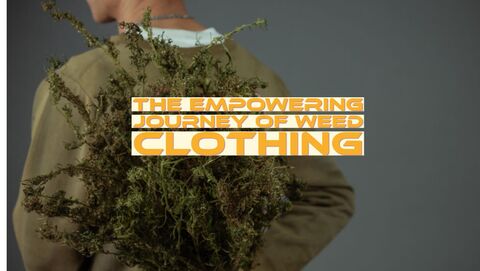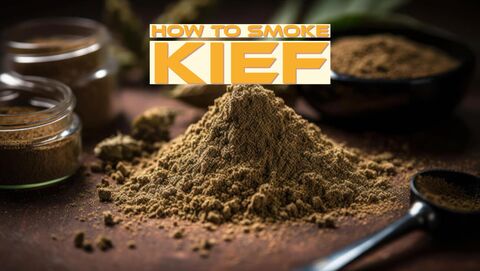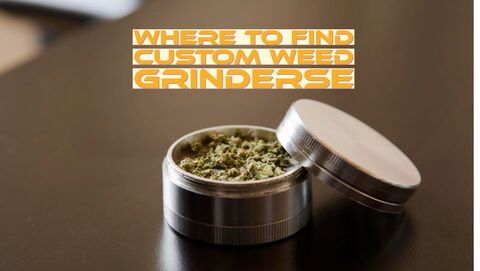Latest Blog Posts
Top rated
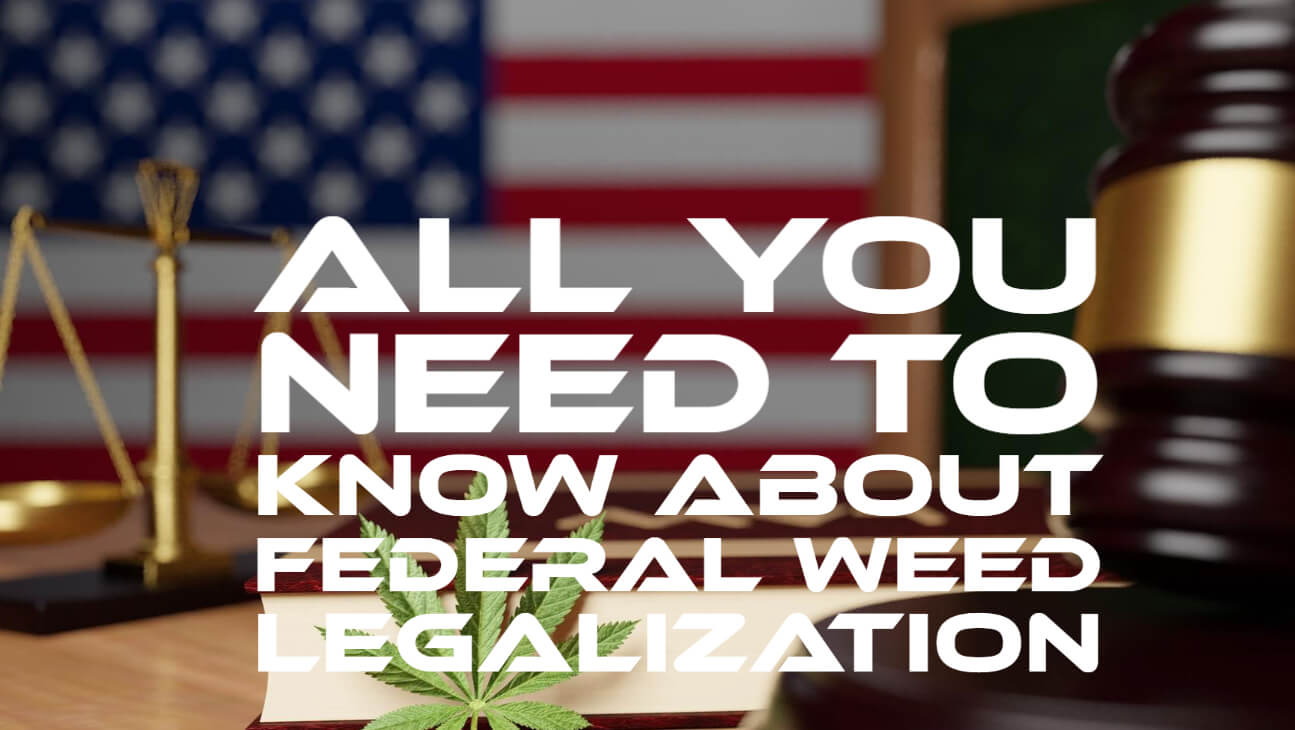
All You Need To Know About Federal Weed Legalization
All You Need To Know About Federal Weed Legalization
The United States of America is the only country in the world where the cannabis industry is making forward progress at this time. For many decades, the thriving cannabis community in this country has kept the sector alive, which has enabled it to become the gold standard around the globe in terms of both quality and creativity.

During the last two years, there has also been a significant increase in the level of professionalization seen in the manufacturing industry. You'll find out all you need to know by reading this article.
Framework For The Law
Since 1996, when California became the first state to authorize the sale and use of medical cannabis, a phenomenon that cannot be controlled has begun to emerge in states that have developed favorable legislative frameworks in this field. This development began in California, which was the first state to authorize the sale and use of medical cannabis.
To this day, 11 states have sanctioned the use of cannabis for its psychoactive effects, while 33 states have authorized the drug's usage for therapeutic purposes. At the federal level, there has been no progress made regarding the use of cannabis as a medicine or stimulant; however, legislation has been created that allows producers of cultivated hemp, a type of cannabis that is commonly known as industrial use, to have a situation of complete legality across the country. This legislation was created in response to the fact that there has been no progress made regarding the use of cannabis as a medicine or stimulant at the federal level.
Industrial Hemp Varieties Could Be Used In Research Projects
Despite the strict prohibition on cannabis that is in place at the federal level, the agricultural bill that was passed in the United States in 2014 contains the first piece of legislation that makes it possible for industrial hemp varieties to be used in research projects. This was accomplished during the presidency of Barack Obama. However, since they were placed in Schedule 1 of the Controlled Substances Act with other substances like heroin, cocaine, and methamphetamine, it would be unlawful to produce commercial hemp without a license. Included in the new law that President Trump drafted was a provision that took industrial hemp off of Schedule 1 of the list of substances that are illegal to possess or use and made it legal to cultivate it anywhere in the United States. The Agricultural Act of 2018, commonly known as the United States Farm Bill of 2018, was recently passed into law.
Regulation Of Cannabidiol-Containing Cosmetics And Food
Because of the ruling mentioned above, the Food and Drug Administration (FDA) now has the authority to regulate products in the cosmetics and food industries that contain cannabidiol (CBD). This leads to a broad variety of distinct circumstances in different states, each of which is dependent on the state's internal regulations limiting the availability of specific things, and it also slows down trade in these products on a global and interstate level.
The Cultivation Of Flowers Containing THC
The only states that are immune from this limitation are those that allow cannabis to be used either as a stimulant or as a medical medication. These farms are committed to growing flowers that are of the highest possible quality, both in terms of the taste they impart and the amount of THC they contain. The flowers may be used to make tobacco as well as a variety of other products (extracts, food, and beverages containing THC, liquids for vapers, sublingual sprays, etc.).
Cultivation Of CBD-Containing Flowers
The cultivation of this specific strain of cannabis is permitted in all fifty states, provided that the maximum THC concentration of 0.3 percent is not exceeded. There are two main kinds of this flower, and they are distinguished by the function that they provide. One thing is the creation of high-quality flowers with high CBD content and outstanding organoleptic features, as is the case with THC flowers; another thing is the production of biomass.
Both of these things are important to the cannabis industry. Flowers of high quality with a low CBD level and great organoleptic properties are utilized in the production of smoking products containing this cannabinoid. These flowers are sold on the market. The conditions for selection based on floral quality are becoming less severe, whereas cultivars selected for their resistance to agriculture are becoming more common. They are often "hempier" strains that are used mainly for extracting CBD from the plant.
Production Of CBG Flowers
Even though commercial production of CBG genetics did not begin in the United States until 2019, genetics has attracted a lot of interest in the industry due to their unique uses and the potential for more control to reach lower THC levels than those seen in other cannabinoids. This is although commercial production of CBG genetics did not begin in the United States until 2019. Since these genetics, which in most cases have a THC content that is lower than the 0.3 percent threshold established in the regulations when counted, can be grown under the regulatory framework for commercial hemp, many businesses are working with these genetics in preparation for the outdoor season of 2020. It is anticipated that large-scale hemp plantations will be established across the country during this season.
Production Of Feminized Seeds Of CBD Genetics
A regulation regarding hemp was passed in 2018 that gives farmers around the country the ability to cultivate CBD-rich kinds. For this kind of gardening, there is a significant need for feminized seeds of the highest possible quality.

Production For Other Industrial Purposes
The creation of traditional industrial hemp refers to the stalk fibers that are used in the production of textiles, paper, and a variety of other items, as well as the production of hemp seeds that are utilized in the production of food. Because of the low profitability of the venture in comparison to other kinds of cannabis growing that are sanctioned, it is very uncommon in the country.
Agricultural Advancements For The Benefit Of Cannabis Farms In The United States
There have been several agricultural developments in the United States that have led to improvements in the cultivation of cannabis. The different types of cannabis production farms have been more diversified and evolved over the last few years. This is a direct result of the federal legalization of hemp, which resulted in the construction of agricultural facilities that differ from those that are often seen in the sector.
Medical Cannabis Consumers In The Us Benefit When Access Is Freely Controlled
In recent years, smoking has been subjected to more stringent regulations. Smoking is being banned in more and more public places, including offices, restaurants, and even train stations. Both the minimum age required to purchase tobacco products and the quantity of advertising for tobacco products have been decreased as a result of recent legislation. Recreational marijuana is used by many people who want to legalize marijuana. Medical marijuana users even agree on marijuana opportunity reinvestment.
By taking this strategy, the government is making an effort to protect its people from the hazards that are associated with tobacco usage. This is the reason why they have been unsuccessful in achieving their long-term healthy living goals: the implementation of these goals is challenging.
It is possible that everyone would benefit from a well-managed intervention on the part of the state, such as a stricter prohibition on the sale of tobacco products. On the other hand, regulatory bodies all over the globe are increasingly moving toward a more permissive position towards marijuana.
The Laws Governing Marijuana
In the last fifteen years, the laws governing marijuana in 31 of the 50 states in the United States have been eased. This offers a nearly ideal training environment for empirical study since, even if one state relaxes its regulations, the economic and social conditions of the other states stay the same. When a law is changed, exceptions are more likely to be acceptable as a result of the loosened constraints because of the legislation. In a culture like the United States, where there is more centralized authority, it is more difficult to pinpoint the effects of this kind. Marijuana possession and marijuana legalization are very important for producers.
For this study, several million people were questioned in the United States, and there's a combination of the results of two distinct surveys. Driving, taking part in sports or having a high body mass index are a few examples of the types of data that fall into this category. The data about the reasons why individuals use cannabis are collected by the National Survey on Drug Use and Health. Marijuana regulation or cannabis legalization is a high demand in many countries. Many people want the government to legalize cannabis so that they have their own marijuana plants.
Reduced Risk Of Developing Lung Cancer
A scientific investigation using smoking machines (each containing 0.8 grams of marijuana and tobacco) found that the amount of tar in cigarettes containing tobacco and cannabis ranged from 40 to 80 milliliters, while the amount of tar that was "inhaled" by the machines ranged from 40 to 100 milliliters.
Although smoking marijuana is associated with a reduced risk of developing lung cancer than smoking tobacco, many of the same components have been found in both types of cigarette smoke. The prevalence and popularity of marijuana joints are astronomical in the United States today. For example, the legendary rapper and cannabis-enthusiast Snoop Dogg is an avid weed smoker who reportedly routinely smokes multiple marijuana joints on a daily basis.
Does Eating Marijuana Do Anything?
If you just consume it, you won't get anything from it other than an odd taste in your mouth. Before the THC can have an effect, it must first be dissolved in fat. In everyday language, this means to start by melting butter in a pan, then adding cannabis or hash and stirring continuously after each addition. Baking is by far the most popular use for butter once it has been prepared, but other applications are possible.
Another thing to bear in mind is that the effects of cannabis take far longer to manifest when it is used orally. You don't feel anything for a very long time, and when you do, it's out of your control since you can't control how many brownies you ate half an hour ago, you porky pig, you. In essence, this means that you don't feel anything for a very long period. People who use cannabis in this manner are at a greater risk of experiencing an overdose compared to those who smoke or ingest the drug.
What Can Be Done About The Anxiety Caused By Cannabis Withdrawal?
The medical expert Franjo Grotenhermen, who has written works such as "Hemp as Medicine" and is the leader of the Cannabis as Medicine Working Group, asserts that the physical dependency caused by marijuana use is equivalent to that caused by tobacco use. There are other factors than genetics that go into determining whether or not someone may develop an addiction to a substance.
Some stoners may still hit the bag before heading to bed, which means the transition into sleep could go smoothly for them ( which is not very recovering after smoking pot by the way ). If you try to quit smoking marijuana, you may find that you experience symptoms of withdrawal. Grotenhermen lists increased perspiration, irritation, trouble sleeping, and anxiety as some of the withdrawal symptoms, although he notes that many people do not experience any withdrawal symptoms at all.
Between Illegal Drugs And Recreational Herb
Cannabis is still regarded as a controlled drug by the United States federal government, even though it is becoming legal in an ever-increasing number of states throughout the nation. Although some states, such as California, Michigan, Nevada, and Vermont, have legalized the use of marijuana, others, such as Idaho, are taking a more cautious approach. In any of the other 16 states, which are among the 33 that allow its use for therapeutic purposes, the use of cannabis in low dosages does not result in criminal prosecution. A person in the state of New York who is caught with a marijuana package weighing less than 25 grams is no longer violating the law but is now committing a minor offense.
Stocks In The Cannabis Industry Go Through A Cycle Of Overvaluation
Because of the fast spike in the price of cannabis stocks, many investors could be brought back to mind the price performance of bitcoin. The euphoria that accompanied the great price rises in the cannabis business was swiftly followed by a full collapse, just as was the case with bitcoin.

However, such hype cycles are not uncommon in the financial markets and may emerge anytime a new technology captures the interest of the general public. This may happen whenever a new technology is introduced. In this context, it is typical practice to overestimate the potential in the immediate term while undervaluing the potential in the long run.
Marijuana is a plant that has been around for millennia, thus it has no place in the hype cycle of the cannabis business. This may be seen in the changes that have occurred in the share prices of the industry's most important producers. After the inflated expectations and the subsequent collapse, it is time to choose the path that leads to enlightenment.
Is It Legal To Own And Consume Marijuana In The United States?
The use of marijuana for recreational or medicinal purposes is now legal in several states in the United States. According to federal law, cannabis is classified as a Schedule I substance, which places it in the same category as heroin and ecstasy. Now that the production of hemp in the United States is legal, many people are curious about whether or not the laws will be altered.
In the United States, rules governing drugs and medications may be found at both the federal and state levels. Even when it comes to the use of cannabis for recreational purposes, federal law always takes priority over state law. This is true regardless of the context.
The Comprehensive Dangerous Drugs Act
This particular regulation came into effect as a result of President Nixon's signing into law in 1970 of the Comprehensive Drug Abuse Prevention and Control Act. A new classification scheme was also implemented for pharmaceuticals and medical products, which was one of the many modifications that took place. The substances were categorized into five different lists, with List I (the most hazardous) including those that had the highest potential for abuse and List V (the least dangerous) containing those that had the lowest potential for safety concerns (acceptable medical treatment).
Marijuana, heroin, LSD, and several other narcotics are all considered to be Schedule I substances.
Anti-Drug Abuse Legislative Measures
In 1986, Congress passed the Anti-Drug Abuse Act into law. Under the provisions of this act, mandatory minimum criminal rules have been created for offenders, including those who have been charged with marijuana use. The severity of the punishment was determined both by the quantity and kind of narcotics that were found.
This Act was changed in 1988 to give low sanctions for youths found guilty of possessing marijuana, and the change took effect immediately. As a direct result of the implementation of the new regulation, the number of people doing time in prison for drug-related offenses is much higher than it was before.
Regulatory Sanctions That Are Presently In Force At The Federal Level
In the United States, federal regulations place more of an emphasis on the frequency with which an individual violates the law as opposed to the amount of cannabis that is actually ingested. A person who is found guilty of possessing marijuana risks a minimum fine of $1,000 and possible incarceration for a year for a first-time offense. Those who are found guilty of a second offense risk a maximum sentence of two years in prison and a fine of $2,500. According to the law, none of these scenarios constitutes a crime; rather, they are examples of "misconduct."
On the other hand, every other circumstance is a violation of the law and carries with it a more severe punishment. The maximum sentence is three years in jail in addition to a fine of $5,000, while the minimum period of imprisonment is ninety days. In addition, each instance of possessing cannabis is classified as either simple possession or possession with the intent to sell, depending on the circumstances.
If a person is found with even a trace amount of marijuana, they will be subject to the consequences described above. Those who are discovered in possession of drug paraphernalia, such as a whistle, risk the same legal consequences as those who are found in possession of the narcotics themselves. When someone is discovered to own a higher number of drugs (i.e., smaller bags), as well as equipment or assets linked with the sale of drugs, such as baggies, a set of scales or a considerable sum of money, then more serious charges may be brought against them.
Is It Possible To Sell Cannabis In The United States?
The simple act of having marijuana is a violation of the law, but selling or distributing it is a far more serious offense. The following factors are considered when determining the severity of the sanctions for the transportation, sale, or smuggling of narcotics:
- What kind of substance was being bought, traded, or otherwise exchanged in the course of this business deal?
- Where exactly did you sell this item?
- The place where an individual is being held against their will (penalties vary from state to state)
- Is it feasible that minors bought these narcotics for themselves?
- As a direct consequence of this, the penalties for trafficking cannabis are far less severe than those for trafficking other so-called "hard" narcotics like cocaine or LSD.
The Law Of A First Offense
Those who are found with between 50 and 99 kg of cannabis risk a possible sentence of 20 years in prison and a maximum fine of one million dollars for their first conviction.
Those who are arrested with less than 100 kilograms of cannabis face between five and forty years in prison and punishment of up to half a million dollars, whilst those who are caught with more than one million kilos face a life sentence and a fine of one million dollars. The penalties are increased by a factor of four if the marijuana is sold to a minor or if it is sold within 300 meters of a school.
The legal definition of exchanging small amounts of marijuana with another individual without receiving pay is considered possession, not supply or sale of the drug.
Is It Possible To Get A Permit To Grow Marijuana In The United States?
The growing of marijuana is defined as "drug manufacturing" by the United States federal government, which makes it illegal. That is to say, it is considered a criminal offense.

The number of cannabis plants that were cultivated illegally by the offender will determine the severity of the punishment that they get.
- a maximum of fifty plants - Possible imprisonment for up to five years and/or a fine of up to $250,000
- 50 to 99 plants may result in a punishment of up to $1 million and up to 20 years in jail.
- 100 to 999 plants: a jail sentence ranging from five to forty years and a fine of up to half a million dollars
- 1000 plants or more result in a ten-year prison sentence in addition to a one million dollar fine.
Is CBD Legal In The US?
Several states in the United States have moved to legalize the use of cannabis and its derivatives, such as CBD, for both medicinal and recreational purposes. However, under current legislation, the use of CBD-containing products is illegal. Technically speaking, it is a restricted drug at the Level I level.
It is illegal to transport CBD from one state to another, even if it is lawful to do so inside that state. The difficulty of this situation is felt by businesses that manufacture goods containing CBD. As a direct consequence of this, the FDA has issued orders to corporations that attempt to categorize their products as food supplements or botanical extracts to "stop and desist" from doing so.
This perspective was further emphasized in 2016 when the Drug Enforcement Administration (DEA) established a new categorization for extracts from the cannabis plant (such as CBD). As a result of this, certain extracts continue to be prohibited.
The Agricultural Act
The passage of the 2018 Agricultural Adjustment act, which removed hemp (and its byproducts) off the list of substances controlled by the Controlled Substances Act, led many people to believe that purchasing and selling CBD would be legal so long as it was derived from hemp and did not include any THC. CBD products are still subject to regulation, as stated in an official statement issued by the Food and Drug Administration (FDA). This indicates that the extraction of CBD is permissible, but the product cannot be sold commercially. Despite the laws that are currently in place, it is not against the law to possess CBD products.
Cannabis For Medical Use In The United States
The use of marijuana for medicinal purposes is legal in a growing number of states in the United States. After the pioneering state of California did it for the first time in 1996, almost all other states soon followed suit. The use of cannabis for medical purposes, on the other hand, is against the law at the federal level. Cannabis is considered to be a drug of Level I risk, regardless of whether or not it is used for therapeutic or recreational purposes (the most harmful).
What About People Who Offer Medical Marijuana For Medical Purposes?
In 2009, President Obama requested the federal government that those who offer medical marijuana for medical purposes be excluded from criminal prosecution under state law. In 2013, the Department of Justice of the United States issued a statement in which it said that it "anticipated a strong, federally-backed enforcement operation and that the option to contest the legalizing law would be rejected at this time."
Given that President Trump has signaled his approval of the use of cannabis for medicinal purposes based on his overwhelming support for farmers and the 2018 Farm Bill, there is certainly a sufficient basis to count on his support for complete the legalization of cannabis despite the traditional conservative stigma against marijuana. On the other hand, a signed medical cannabis proclamation that President Trump published in 2019 gave his administration the right to prosecute federal drug prohibitions, even against those who comply with state laws regarding cannabis use for medicinal purposes. However, both Attorney Generals under his administration, Jeff Sessions and William Barr, gave discretion to the U.S. Attorneys of each jurisdiction to determine whether a prosecution would be enforced.
America's Industrial Hemp Industry
In 2018, President Trump issued an executive order legalizing the cultivation of cannabis for purposes of producing hemp. Because of the recently passed "Farm Bill," it became permissible for farmers in the United States to grow hemp on a much larger scale.
The reauthorization of the Farm Bill is scheduled for 2023. The Federal Legislation places the regulation of hemp for industrial use within the jurisdiction of the Department of Agriculture. For THC, the psychoactive component of hemp, to be regarded as legal, the plant's dry weight must contain no more than 0.3 percent of the substance. Although the federal government has sanctioned the cultivation of hemp, the production of cannabis over the 0.3 percent THC level is still illegal.
There are a variety of multinational firms all over the world that are upbeat about the foreseeable future and prepared to start manufacturing CBD goods as soon as it is legalized. The Coca-Cola Company, Tilray Inc., and Molson Coors Brewing Company are just a few examples of the kinds of businesses that fall under this classification.
Useful To Know
- According to the results of a recent survey, 66 percent of American adults are in support of making marijuana use legal. The number of people who want legalization has increased for the third year in a row.
- It is estimated that over 22.2 million people in the United States have used cannabis for non-medical purposes in the last month, making it the drug with the highest rate of misuse in the nation (as of June 2018 data).
- The cannabis industry in the United States is booming even though it remains illegal at the federal level. It is anticipated that the market for cannabis products would continue to grow at a pace of around 28 percent per year until the year 2021.
Cannabis' Growing Legitimacy In The Eyes Of Society
The vast majority of people living in the United States are in favor of the government legalizing marijuana. It would seem that shifting attitudes against cannabis in the media are a big factor. On the other hand, the favorable characteristics of cannabis are now being discussed openly in the public sphere, both on television and in the press. In a subsequent step, this affects the people who make up the country.
However, there are still some who maintain their steadfast opposition to the legalization of marijuana. The conservative wing of the Republican Party, as well as a significant number of people in today's society, is staunchly committed to the idea that marijuana is harmful to society. There is some evidence to suggest that even President Trump is in support of the use of marijuana for medical purposes being legalized at the federal level should he run and be elected in 2024.
When Will Cannabis Be Allowed For Recreational Use In Many Countries?
Because an increasing number of countries all over the world have decriminalized marijuana and are reporting favorable results, it seems as if it is only a matter of time until Germany does the same thing.
Decriminalization of drugs alone in Portugal 15 years ago (i.e. not complete legalization) resulted in much lower crime rates, fewer HIV infections, and lower drug usage in general, particularly among young people, particularly in Portugal's capital city of Lisbon. This was particularly true in Portugal's capital city of Lisbon. It is also essential to take into consideration the fact that the manufacturing, distribution, and use of cannabis are now allowed only in eight states.
As a direct consequence of the successful actions taken by pioneering states such as California and Colorado, there is reason to have faith that the federal government on behalf of the people of this nation will one day end the prohibition and criminalization of marijuana and other drugs.
The Present Atmosphere In The Political Sphere
Patients in 18 states in the United States may now produce or buy their own medicine on their own. In the states of Washington and Colorado, marijuana usage is completely legal for adults. MPP (Missouri Physicians for the Prevention of Addiction) and NORML (National Organization for the Reform of Marijuana Laws) are two national organizations that have had a significant impact on state drug legislation in recent years. NORML stands for the National Organization for the Reform of Marijuana Laws (Marijuana Policy Project).
These have been a significant contributor to the success of petitions in several states seeking to modify the laws around marijuana. Despite this, federal law continues to prohibit the sale of chemicals across the United States. Under the present government, the prohibition law that was first enacted in 1937 is still being strictly enforced.
According to estimates provided by NORML, the current value of the medical marijuana industry in the United States is anywhere from $1.5 billion to $2.5 billion. As stated by projections provided by the Department of Income of the state of Washington, a fully functional marijuana sector may generate an extra fifty billion dollars in revenue.
Economists' Views
A legitimate market is the only environment in which real control, in the sense of protecting customers and children, is possible. After cannabis was legalized, open markets were finally able to compete with the mafia-controlled monopoly that previously existed in the industry. The market for smuggling in Mexico is impacted as a result of this as well. If the proposed legalization of marijuana is successful, the Mexican Institute for Competitiveness predicts that organized crime figures like Al Capone would become extinct in the country over the next few years (IMCO). Purchasing things made in the United States is backed by the higher quality as well as the legal means of doing so.
To this day, Mexico is responsible for providing anything from 40 to 70 percent of the marijuana that is consumed in the United States. Marijuana's yearly turnover of $2 billion makes it the second-largest source of money for criminal organizations that deal drugs, behind only cocaine (2.4 billion dollars turnover).
The Bottom Line
Ever since 1996, when California became the first state to legalize the sale and use of medicinal cannabis, an uncontrollable phenomenon has started to emerge in states with favorable legislative frameworks on this subject. This evolution started in California, the first state to legalize the sale and use of medicinal cannabis. So far, 11 states have legalized the use of cannabis for its euphoric effects, while 33 states have legalized the drug's medicinal use.
There has been no movement at the federal level addressing the use of cannabis as a medication or stimulant; nonetheless, legislation has been enacted that permits producers of grown hemp, a kind of cannabis generally known as industrial usage, to enjoy total legality throughout the nation. This law was enacted in reaction to the federal government's failure to make headway on the use of cannabis as a medication or stimulant.
DISCLAIMER: This material is for informational purposes only and should not be relied on for legal, medical, financial, or any other form of professional advice.

